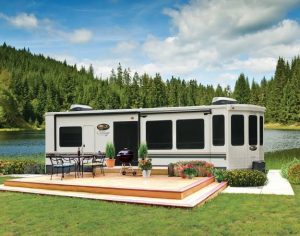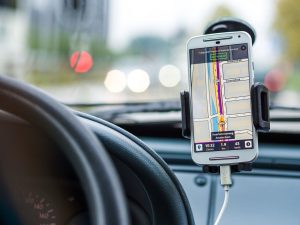
Remote camping offers a unique opportunity to escape the chaos of everyday life and immerse oneself in the tranquility of nature. Whether you’re a seasoned outdoor enthusiast or a novice adventurer, venturing into the wilderness requires careful planning, preparation, and the right gear. In this comprehensive guide, we’ll cover everything you need to know to embark on an unforgettable remote camping experience, from choosing the perfect location to essential gear and expert tips.
Choosing the Perfect Remote Camping Location
Choosing the perfect remote camping destination is more than just picking a spot on the map. It’s about finding that hidden gem that offers both tranquility and excitement. Consider factors such as the terrain – do you want mountainous landscapes or serene forests? The climate – are you prepared for extreme temperatures or unpredictable weather? Accessibility is key, but don’t discount the beauty of a bit of seclusion. And always be sure to research any regulations or permits necessary for your chosen location.
While it’s tempting to seek out popular spots, consider looking off the beaten path for secluded locations that offer stunning natural beauty and opportunities for true exploration. Embracing Leave No Trace principles ensures that future generations can also enjoy these pristine environments. By conducting thorough research and keeping these considerations in mind, you can set yourself up for an unforgettable outdoor adventure in a remote camping paradise.
Essential Gear for Remote Camping
Packing the right gear is essential for a successful remote camping trip. Here are some must-have items to include in your gear list:
- Shelter: Choose a lightweight and durable tent, hammock, or bivy sack to protect you from the elements.
- Sleeping essentials: Invest in a high-quality sleeping bag and sleeping pad for a comfortable night’s rest.
- Cooking equipment: Pack a portable stove, cookware, utensils, and food for your camping meals.
- Navigation tools: Bring maps, a compass, and a GPS device to navigate unfamiliar terrain.
- Safety gear: Pack a first aid kit, emergency communication device, and bear-proof containers to stay safe in the wilderness.
- Clothing and footwear: Dress in layers and wear sturdy footwear suitable for hiking and exploring various terrain and weather conditions.
Use a Reliable Vehicle
If you are planning to camp in a remote location, the chances are you will need a 4WD vehicle to get there. As the track to reach your destination can be quite challenging, it is also advised to take reliable recovery gear with you, in case the vehicle gets bogged in mud or sand. Mud recovery tracks, snap strap and battery operated vehicle winches are popular options.
Planning and Preparation
Proper planning and preparation are crucial for a successful remote camping trip. Create a detailed itinerary and share it with a trusted contact before you depart. Pack efficiently to minimize weight and bulk, prioritizing essential items while leaving unnecessary luxuries behind. Prepare meals and snacks in advance to minimize food waste and ensure you have enough sustenance for the duration of your trip. Familiarize yourself with local wildlife and potential hazards, and practice Leave No Trace principles to minimize your impact on the environment.
Techniques for Remote Camping
Once you’ve arrived at your remote camping destination, it’s time to set up camp and immerse yourself in the wilderness. Follow these techniques for a safe and enjoyable camping experience.
- Choose a suitable campsite away from hazards such as dead trees, rocky terrain, or areas prone to flooding.
- Build a campfire responsibly, following local regulations and guidelines, and always extinguish it completely before leaving.
- Purify water from natural sources using a filtration system or water purification tablets and a portable water pump to prevent waterborne illnesses.
- Practice navigation skills and orienteering techniques to explore off-trail areas safely.
- Be prepared for wildlife encounters and know how to react to different species, respecting their habitats and observing from a safe distance.
Enjoying the Remote Camping Experience
Remote camping offers a profound opportunity to disconnect from the hustle and bustle of everyday life and reconnect with the natural world. As you immerse yourself in the great outdoors, embracing the simplicity of life without technology, you open yourself up to a world of serenity and tranquility. The absence of urban noise allows you to fully appreciate the subtle sounds of nature – the rustling leaves, chirping birds, and gentle murmurs of water – creating a symphony that soothes the soul and calms the mind.
Engaging in outdoor activities such as hiking, fishing, or wildlife watching not only provides an avenue for physical exertion but also cultivates a deep sense of appreciation for nature’s wonders. Through photography or journaling, you can capture fleeting moments and memories that will forever remind you of your immersion in nature’s beauty. Away from screens and digital distractions, remote camping encourages introspection that can lead to improved mental well-being. Amidst serene landscapes, one can experience a profound sense of freedom and rejuvenation, leaving behind stressors while finding solace in untamed nature.
Safety and Emergency Preparedness
When venturing into the wild for a remote camping experience, it’s crucial to embrace the unknown while prioritizing safety. While the thrill of exploring untouched landscapes is undeniably alluring, it’s essential to equip yourself with the knowledge and resources to handle potential emergencies. By communicating your plans and itinerary with a trusted contact, you not only create a safety net but also ensure that help can reach you if needed.
Being well-versed in emergency procedures and familiar with local authorities’ contact information can be invaluable in critical situations. Carrying a well-stocked first aid kit and having the know-how to administer basic medical care for outdoor injuries empowers you to address unexpected mishaps effectively. Embracing the spirit of adventure doesn’t mean disregarding precaution; instead, it involves approaching every outing with careful preparedness and an openness to adapt should unforeseen circumstances arise.
Conclusion
Remote camping offers a unique opportunity to disconnect from the stresses of modern life and reconnect with the natural world. By following the tips, tricks, and gear recommendations outlined in this guide, you can embark on an unforgettable adventure into the wilderness while staying safe, prepared, and responsible. Whether you’re seeking solitude, adventure, or simply a chance to recharge, remote camping has something to offer for everyone. So pack your bags, lace up your boots, and set out into the great unknown for an experience that will leave a lasting impression on your mind, body, and soul.





